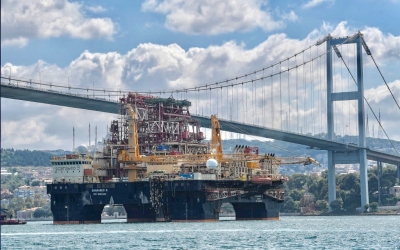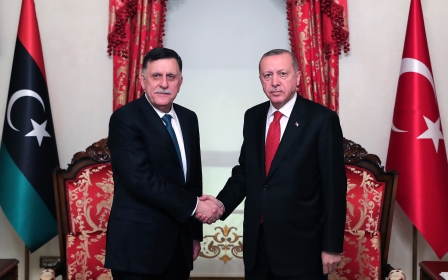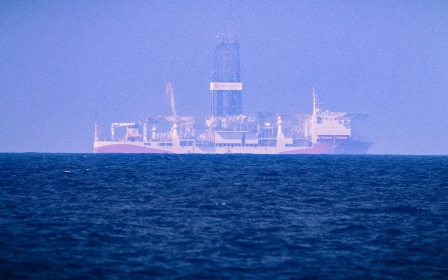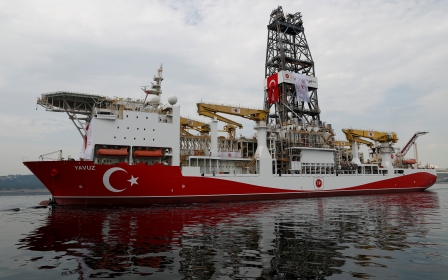Israel, Greece and Cyprus ink EastMed pipeline agreement
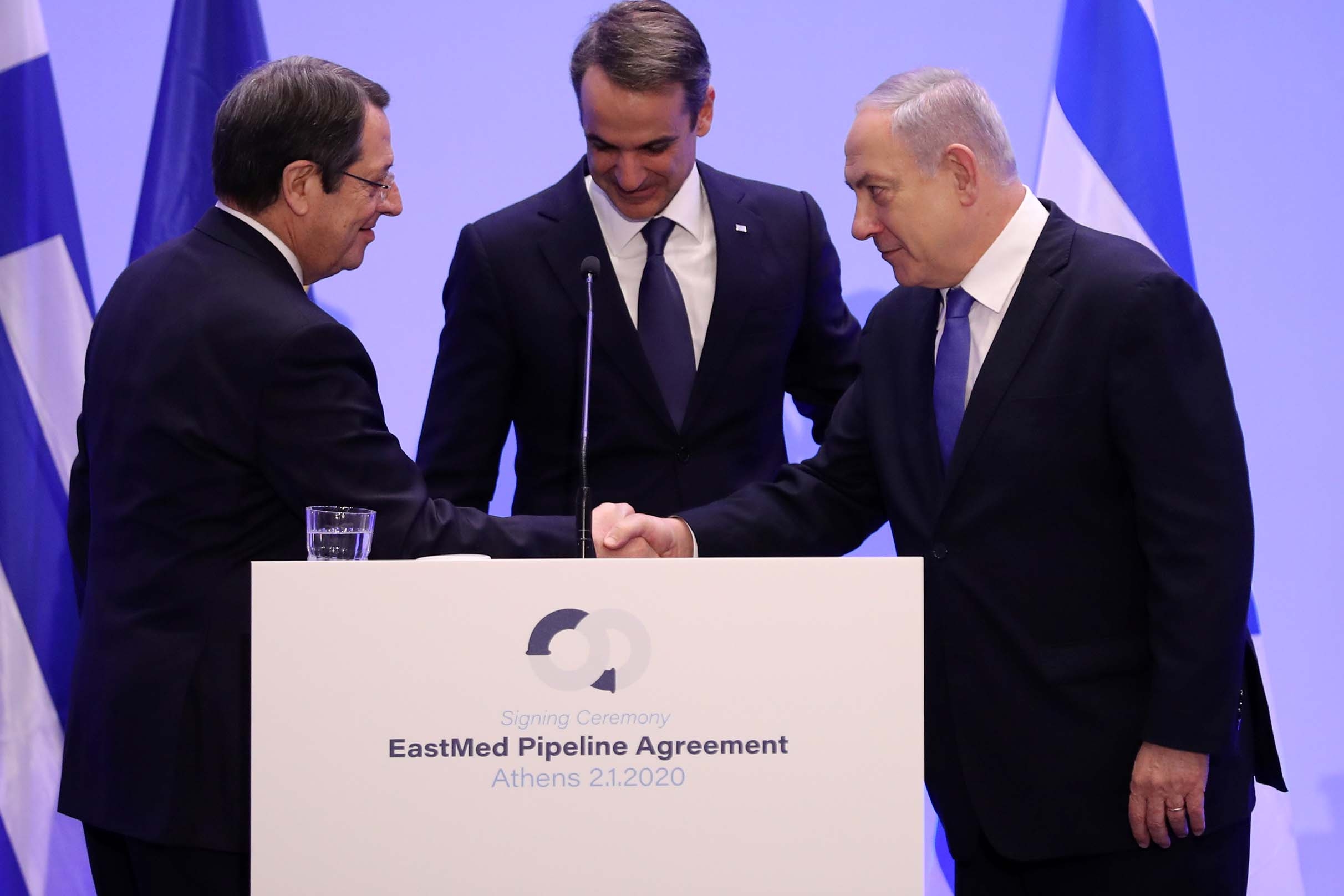
Israel, Greece and Cyprus signed a deal for a pipeline project to ship gas from the eastern Mediterranean to Europe, despite Turkey's hostility to the deal.
The 2,000-kilometre pipeline, dubbed EastMed, will be able to carry between nine and 12 billion cubic metres of gas each year from Israel's Levantine Basin offshore gas reserves to Cyprus, the Greek island of Crete and the Greek mainland, AFP said.
The gas could then be transported to Italy and other southeastern European countries.
The deal was signed by the energy ministers of the three countries, with Greek Prime Minister Kyriakos Mitsotakis, Israeli Prime Minister Benjamin Netanyahu and Cypriot President Nicos Anastasiades in attendance at a ceremony in the Greek capital.
The agreement comes during tensions between the three countries and Turkey over Ankara's activities in the area and a maritime deal with Libya expanding Turkey's claims over a large gas-rich area of the sea.
These tensions have been exacerbated in recent years after Greece and Cyprus began issuing hydrocarbon drilling licences.
Turkey has accused Cyprus authorities of exploring waters that either belong to Ankara or are claimed by Turkish Cypriot authorities, MEE reported earlier this month.
Ankara already faces European Union sanctions over its ships searching for oil and gas off Cyprus, whose government is not recognised by Turkey.
European governments and Israel had agreed in April to move forward with the EastMed pipeline project to carry natural gas from Israel to Europe, setting a target completion date of 2025.
The EastMed project is expected to make Cyprus, Greece and Israel key links in Europe's energy supply chain and aims to stymie Turkey's effort to extend its control to the eastern Mediterranean.
Europe is keen to diversify its energy supplies and lessen its dependence on Russia, and Greece wants to promote itself as a hub for the transit of gas from the eastern Mediterranean to the continent, Reuters said.
Middle East Eye propose une couverture et une analyse indépendantes et incomparables du Moyen-Orient, de l’Afrique du Nord et d’autres régions du monde. Pour en savoir plus sur la reprise de ce contenu et les frais qui s’appliquent, veuillez remplir ce formulaire [en anglais]. Pour en savoir plus sur MEE, cliquez ici [en anglais].


